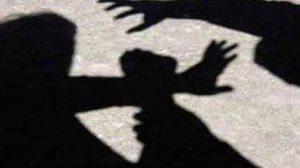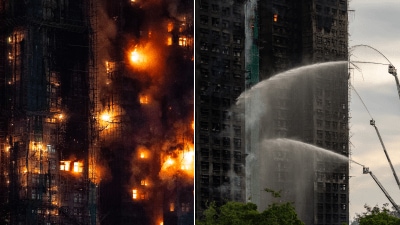For the second time in the last 10 days, amid an ongoing political crisis in Maldives, the island nation has approached India with a request to allow a special envoy to meet the Indian leadership at a “convenient time” for New Delhi. Speaking to The Indian Express, Maldives Ambassador to India, Ahmed Mohamed, said: “During Thursday’s meeting between Indian Ambassador Akhilesh Mishra and our Foreign Secretary Ahmed Sareer, we once again requested India for a bilateral visit by a special envoy from our President. Unlike last time, when we had requested for a visit by a special envoy on a specific date, this time it has been kept open-ended, at a time convenient to the Indian government.”
Mohamed has not held a face-to-face meeting yet with Indian officials since the crisis began, but said he was in touch with officials from the Ministry of External Affairs over phone. After the Maldives government jailed former president Maumoon Abdul Gayoom and the Supreme Court Chief Justice, following an adverse ruling to
release 12 jailed opposition leaders, the country had sent special envoys to China, Pakistan and Saudi Arabia.
In a move to assuage concerns raised by New Delhi through diplomatic channels, Male has conveyed that its special envoy did not seek military support from the Chinese leadership.

Read | Delhi and Maldives break the ice first time in latest chill
 Maldivian police officers stand guard on a street after Maldives President Abdulla Yameen declared a state of emergency for 15 days, in Male, Maldives February 6, 2018. (Reuters/File Photo)
Maldivian police officers stand guard on a street after Maldives President Abdulla Yameen declared a state of emergency for 15 days, in Male, Maldives February 6, 2018. (Reuters/File Photo)
On February 7, the Maldives government informed India that a special envoy would like to visit on February 9, and meet the External Affairs Minister or the Ministers of State, as well as the Prime Minister. However, India expressed its inability to host the envoy, citing scheduling issues — External Affairs Minister Sushma Swaraj and Prime Minister Narendra Modi were travelling.
On the meeting between Mishra and Sareer in Male Thursday, Mohamed said, “The Indian envoy was told that the special envoy has not asked for any military intervention from China or any other country. The Indian side wanted to know about the discussions between Maldives’ special envoy and the Chinese leadership in Male. So, we clarified our position.”
Also read | Bengaluru FC asked by MEA to defer Maldives visit, cites advisory
The Maldives envoy said the Indian official also wanted to know when the nation would return to normal. “We have conveyed that the Maldives government has all the intention to end the emergency as soon as possible,” he said. President Abdulla Yameen imposed emergency on February 5 for a 15-day period.
Story continues below this ad
On the calls for military intervention by India, Mohamed said, “We were concerned not because of (former President Mohamed) Nasheed (who demanded Indian intervention). But senior BJP leaders of high calibre like Yashwant Sinha, who has been former finance and foreign minister, and whose son is in the Cabinet, had called for military intervention. Although he is a non-state actor, being a senior member of the BJP, general public in Maldives were getting worried. So, the Maldives defence ministry had to issue a statement to assuage the domestic concerns.”
He said the current situation was very different from 1988, when India had intervened militarily. “There is no genocide, no massacre, no civil war in Maldives. The foreign expats are not in danger. So, the basic conditions for foreign military intervention, under international law, is not there in Maldives. As government officials, we know this. But the general public in Maldives were worried,” he said.
On whether he had asked India to clarify this position, he said, “On what basis would we have asked? The government had not said so (that they would intervene militarily). Only non-state actors had suggested such intervention. So, how can we ask the government whether such an intervention is being planned or not?”
In 1988, he said, Maldives had approached India for help when people were being killed, gunmen were roaming the streets of Male and then president Gayoom’s life was in danger.
Mohamed described Nasheed’s call for military intervention was “an act of treason”. “It is irresponsible for him to suggest such a thing, if he aspires to become a President of the country,” he said. On whether the current crisis has dented the image of Maldives, the envoy said, “Probably, it has…but for us, the democratic norms and the rule of law needs to be maintained.”
Story continues below this ad
The envoy alleged that the two judges, who were jailed, were found to have “taken bribes” and had “overstepped the Constitutional provisions” — the “Maldives Supreme Court took law into their own hands”. “In such a situation, where the Supreme Court took the law into their hands, the President, who is the ultimate authority responsible under the Constitution to implement the rule of law, has to stop it,” he said.
Asked if he had a message for India, Mohamed said, “Let us meet at the highest possible levels, and try to understand the situation in Maldives. And, we would like India to lend a helping hand in resolving the differences and focussing on coming out of the current situation.”
Asked what he meant by a “helping hand”, he said, “Public statements are not a helping hand. Closed door discussions are needed. Public diplomacy comes in when all else fails.” Meanwhile, Ministry of External Affairs spokesperson Raveesh Kumar said the Indian government would monitor what steps are being taken in the next few days by the Maldives government.

 Maldives Ambassador to India, Ahmed Mohamed
Maldives Ambassador to India, Ahmed Mohamed
 Maldivian police officers stand guard on a street after Maldives President Abdulla Yameen declared a state of emergency for 15 days, in Male, Maldives February 6, 2018. (Reuters/File Photo)
Maldivian police officers stand guard on a street after Maldives President Abdulla Yameen declared a state of emergency for 15 days, in Male, Maldives February 6, 2018. (Reuters/File Photo)





